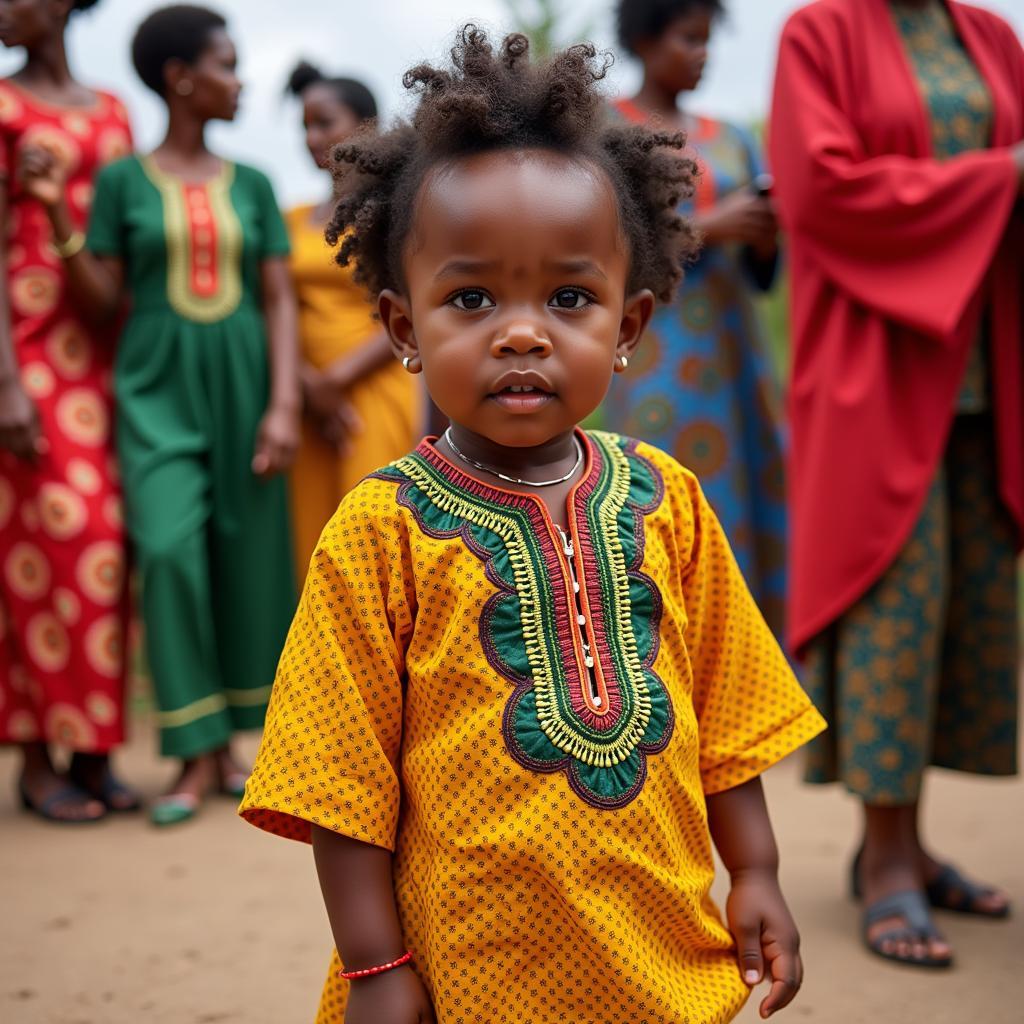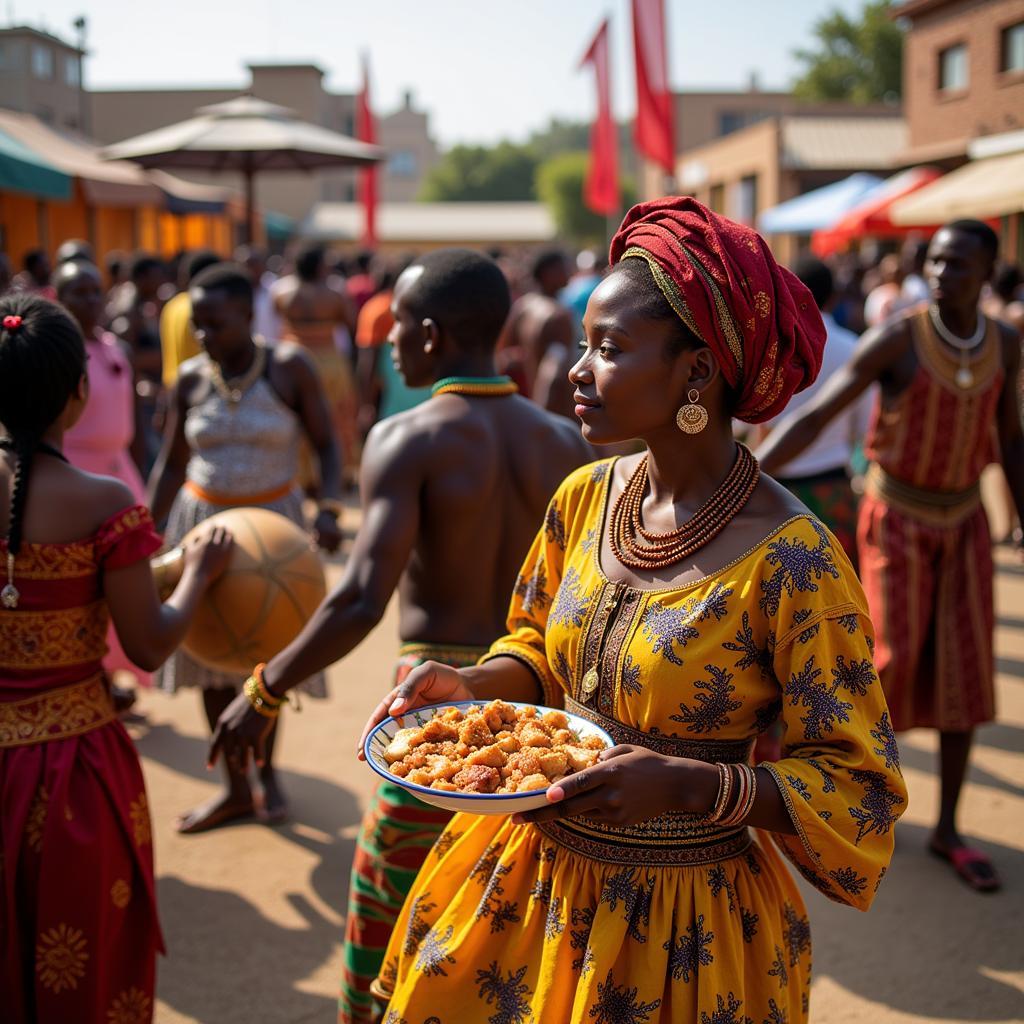Unpacking African Education Problems: A Continent-Wide Perspective
African Education Problems represent a complex web of interconnected challenges that hinder the continent’s development. These issues, ranging from limited resources and inadequate infrastructure to socio-cultural barriers and political instability, demand a multifaceted approach to create lasting solutions.
Funding and Resource Allocation in African Education
A critical aspect of African education problems stems from inadequate funding. Many African nations struggle to allocate sufficient resources to education, resulting in overcrowded classrooms, a shortage of qualified teachers, and a lack of essential learning materials. This underfunding perpetuates a cycle of poverty and limits opportunities for future generations. For example, in many rural communities, children are forced to walk long distances to attend schools that lack basic amenities.
Infrastructure and Access: Hurdles to Learning
Poor infrastructure poses another significant challenge. Many schools lack proper classrooms, libraries, and sanitation facilities, creating an environment that is not conducive to learning. Limited access to electricity and internet connectivity further exacerbates the digital divide, hindering students’ ability to engage with modern learning tools. The African Institute for Mathematical Sciences Rwanda is a great example of how investment in education can make a difference, but more such initiatives are needed across the continent.
Bridging the Gap: Addressing Infrastructure Deficiencies
Addressing these infrastructure deficiencies requires a concerted effort from governments, NGOs, and international organizations. Investing in building new schools, renovating existing ones, and providing access to technology are essential steps toward improving the learning environment. Initiatives like providing mobile learning centers and solar-powered computer labs can help bridge the gap in remote areas.
Socio-Cultural Barriers and Educational Access
Deep-rooted socio-cultural barriers also contribute to African education problems. In some communities, girls face discrimination and are denied equal access to education. Child labor and early marriage further restrict educational opportunities for many children, particularly girls. Traditional beliefs and practices can sometimes conflict with modern education, leading to lower enrollment rates and high dropout rates, especially in rural areas.
“Education is the most powerful weapon which you can use to change the world,” said Nelson Mandela. His words resonate deeply with the struggles faced by many African children seeking access to quality education.
Political Instability and its Impact on Education
Political instability and conflict disrupt education systems, forcing schools to close and displacing students and teachers. In conflict zones, schools are often targeted, further jeopardizing the future of children. The lack of security and safety in these regions creates a hostile environment for learning and makes it difficult to rebuild and sustain educational infrastructure.
The Role of Curriculum Development
Outdated and irrelevant curricula also hinder the effectiveness of education systems. Many African countries are grappling with the challenge of developing curricula that are relevant to the needs of the 21st century and that prepare students for the global job market. There is a need for greater emphasis on STEM education, vocational training, and entrepreneurship skills.
Dr. Amina Mohammed, a prominent educator in Kenya, believes, “Investing in quality education is not just a social responsibility but also an economic imperative. It is the key to unlocking Africa’s vast potential.” Her insights underscore the importance of addressing the root causes of African education problems.
Conclusion: Paving the Way for a Brighter Future
Addressing African education problems requires a comprehensive approach that tackles the root causes of these challenges. Increased funding, improved infrastructure, addressing socio-cultural barriers, and promoting peace and stability are crucial for creating a conducive learning environment. By investing in education, Africa can unlock its full potential and build a brighter future for generations to come.
Frequently Asked Questions (FAQs)
- What are the main challenges facing education in Africa?
- How can technology be used to improve education in Africa?
- What role can the international community play in supporting African education?
- How does poverty affect access to education in Africa?
- What are some successful initiatives that have improved education in Africa?
- How can we address the issue of teacher shortages in Africa?
- What are the long-term consequences of neglecting education in Africa?
For further information on related topics, you might be interested in articles such as 16 years african girl sex video, which sheds light on some of the societal challenges faced by young girls in Africa and African kids eating mud cake, which offers a glimpse into the nutritional challenges faced by some communities. Understanding these interconnected issues is vital in addressing the broader context of African education problems. Additionally, learning about African khatna provides insight into cultural practices that can impact education access, while exploring resources related to african child eye checkup black and white helps understand the healthcare challenges impacting children’s ability to learn.
Need support? Contact us 24/7:
Phone: +255768904061
Email: kaka.mag@gmail.com
Address: Mbarali DC Mawindi, Kangaga, Tanzania.



